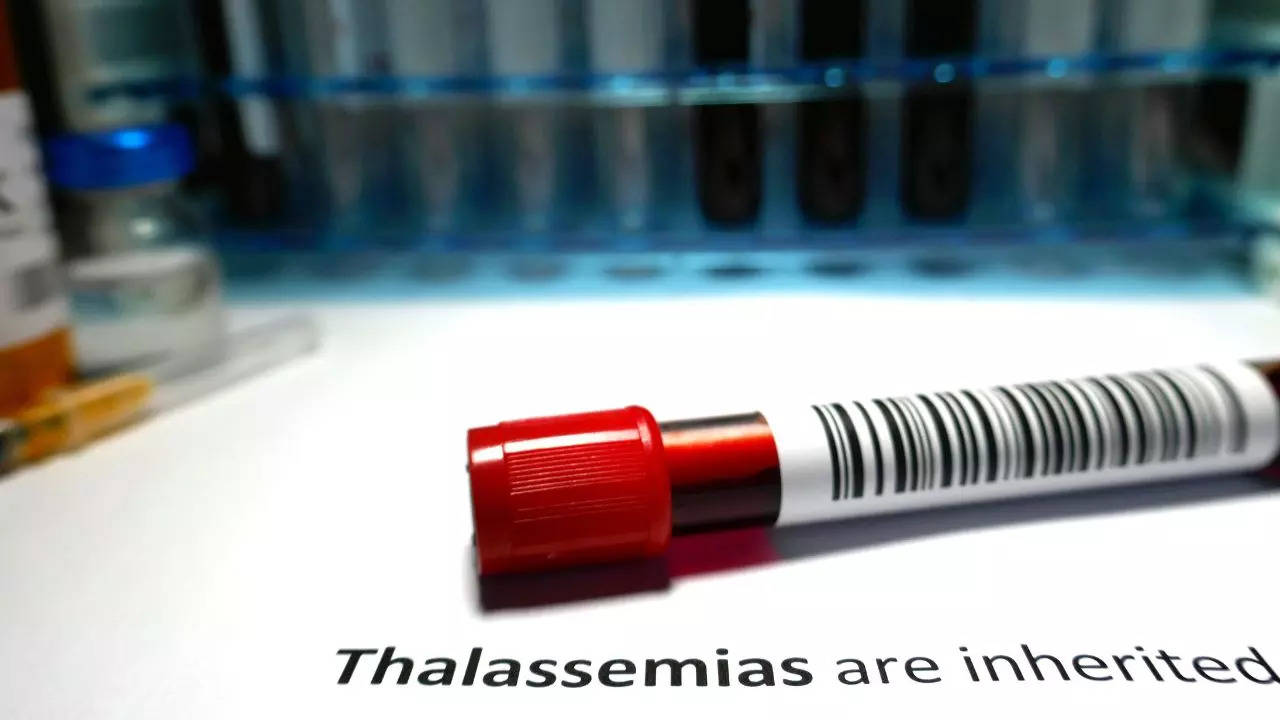World Thalassemia Day: Date, Theme, History And Significance Of The Day
World Thalassemia Day aims to raise awareness about thalassemia. Reports say that there are nearly 300 million people around the world who have the ‘thalassemia trait’. This puts them at risk of having children with some form of thalassemia. Read on to take a look at the date, theme, history, significance and effective ways to manage thalassemia.

Date, Theme, History And Significance Of World Thalassemia Day
Thalassemia is a genetic disorder wherein your body doesn’t make haemoglobin which causes poor oxygen transportation and anaemia. The condition affects the red blood cells of your body which carry oxygen throughout the body. Some people might have mild thalassemia, however, for people with severe thalassemia, there is an increased risk of organ damage and death. Therefore, people with thalassemia might need frequent blood transfusions or bone marrow transplantation in some cases. While the condition cannot be prevented, early screening through prenatal screening and genetic testing can help in managing the condition and improve the quality of life. World Thalassemia Day aims to raise awareness about the condition.
Reports say that there are nearly 300 million people around the world who have the ‘thalassemia trait’. This puts them at risk of having children with some form of thalassemia. Here, take a look at the date, theme, history and significance of World Thalassemia Day.
World Thalassemia Day Date
Every year, World Thalassemia Day is observed every year on May 8. Hence, this year, it will be observed on Wednesday.
World Thalassemia Day Theme
Thalassemia Internation Federation on their website said, “The theme of the event this year is Empowering Lives, Embracing Progress: Equitable and Accessible Thalassaemia Treatment for All.”
World Thalassemia Day History
The Thalassemia International Federation (TIF) was established in 1994 and the first World Thalassemia Day was celebrated in that year. The day was first observed to remember the son of Panos Englezos who was a Thalassemia patient and died from the disease. World Thalassemia Day aims to raise awareness about the challenges of Thalassemia patients and the importance of screening for the disease.
World Thalassemia Day Significance
Thalassemia International Federation on their office website said, “With an estimated 100 million people worldwide carrying genes responsible for thalassaemia, and more than 300,000 babies born annually with severe forms of the disease, International Thalassaemia Day is a powerful call to raise awareness about this condition and its impact while celebrating the solidarity of the resilient thalassaemia community worldwide.
“Our focus for 2024 is unambiguous: to ensure all individuals with thalassaemia, no matter their location or economic circumstance, receive access to accurate diagnosis, current and future treatments, and well-rounded care.”
Effective ways to manage thalassemia
Regular medical check-ups
Go for regular check-ups with your doctor to monitor the condition, manage symptoms and accordingly adjust your treatment.
Blood transfusions
For people with severe forms of thalassemia, regular blood transfusions may be required to maintain adequate levels of healthy red blood cells. Make sure to follow the recommended transfusion schedule.
Iron chelation therapy
Since frequent blood transfusions can lead to iron overload in the body, it is important to undergo iron chelation therapy. This helps remove excess iron and prevent organ damage.
Folic acid supplements
Taking folic acid supplements can help improve red blood cell production and reduce the risk of developing complications related to thalassemia.
Healthy lifestyle choices
Adopting a healthy lifestyle, including a balanced diet, regular exercise, adequate rest and avoiding smoking and excessive alcohol consumption can help improve overall well-being and reduce complications related to thalassemia.
Genetic counselling
If you’re planning to start a family and have thalassemia or carry the genetic mutation, it is important that you go for genetic counselling. This can give you information about the risks of passing the condition to your children and other available options.
Trending:
End of Article
Subscribe to our daily Lifestyle Newsletter!
Related News





6 Worst Foods For People With Diabetes

5 Healthy Habits That May Add 5 Years To Your Life

Optical Illusion Personality Test: What You See First Can Reveal If You Are Logical Or Emotional

Janhvi Kapoor Dislocated Her Shoulders During Mr And Mrs Mahi Shoot; What You Should Know About The Injury

Why Bael Juice Is A Must-Have Drink During Summer?








